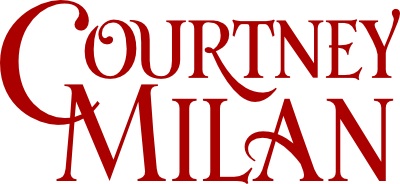Every time I talk to my sisters about events in the past–sometimes even events in the recent past–I’m struck by how differently we see things. There’s a story we all tell about our mother, for instance, and everyone in my family tells it differently. (My mother’s version of the story insists that she wasn’t even the one who made the decision.)
For the most part, we’re all the heroes of our own tale. We make sense of the world in relation to us. Our world revolves around ourselves, even if we try to be cognizant of the fact that not everyone feels the same way. Even if we try not to be selfish, everyone is inevitable self-centered, at least in so far as their point of view is stuck behind their eyes. Someone tells me what I said and did a few months ago, and their view of it is colored indelibly by their point of view. And while I sometimes hear their account in surprise (I did what? I said what? Surely not!) I have to recognize that my glasses (permanently tinted rose, at least with regards to myself) are affixed.
One of the things I wanted to do with Unveiled (and the sequels involving the other Turner brothers) was explore this phenomenon. Everyone’s the hero of their own tale. I don’t think it’s possible to ever bring accounts of “what happened” into perfect harmony. It’s just not a resolvable problem.
It’s interesting to me now, as I finish touching up Unclaimed–Mark’s story–because I wonder whether people will try to sync up Mark’s view of things with Ash’s. Mark and Ash mention the same stories, but not quite in the same way. I wonder whether people will think that’s a feature or a bug.
The obvious “for instance”: No matter how old Mark gets, Ash will always see him as his little brother, someone who needs to be protected. When Mark is seventy years old, Ash will still be looking out for him, and getting annoyed because Mark failed to mention that he was going on a trip for a few days, and what if something had happened to him? In Unveiled, Ash identifies specific ways in which he needs to protect his brother. But like most grown men, Mark doesn’t think he needs to be protected at all….

Oh, it’s a feature. I adore books/series where the multiple narrators have such varying viewpoints you kind of wonder if they’re talking about the same thing. And it’s even more fun if some of them are a wee bit unreliable…
I’m reading your book now and hope that you do give Mark & Smite’s POV on the same situation. This is illustrated quite effectively in the scene where Smite rushes home. Ash’s POV is quite the opposite of what is actually happening.
BTW, I’m also enjoying how you side-stepped all the usual contrivances in keeping the h/h apart. I’ll try to explain this without spoilers: Most authors would have written Margaret’s masquerade as the ultimate betrayal. You chose not to do that and was true to Ash’s character.
FEATURE! I am so, so sick of stories where the character’s perceptions are presented as fact. The most egregious is when the narrator says “She knew he was telling the truth”. No, she didn’t! She believed he was telling the truth. Big difference. Big. Huge. But it can also be more subtle, like when a character’s “instincts”, with no basis in her characterization, turn out to match reality.
If two characters as different as Ash and Mark told the exact same story, I would call BS. Because there is never just one side to a story, and their worldviews are so very different.
Perceptions hardly ever line up exactly with objective reality. How could they? You only have a single perspective. If there’s a fence between me and you and I can’t see you, does that mean you weren’t there? Obviously not. Does it mean I’m lying when I say you weren’t there? Of course not.
This is why I love Rashomon style stories, when the story is told several times from different points of view. How a story is told tells me so much about the narrator.